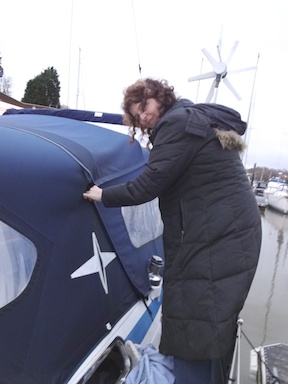We were shipping a container full of furniture from the UK to Uruguay, without any clear idea of the import charges that would be levied at the other end. The wheels of South American bureaucracy grind but slowly, so although we had already forwarded a full inventory of our intended shipment complete with individual photos and descriptions of every item, the deadline for our own flight to Montevideo was looming and so we just had to let the container go, otherwise there would be no chance of it being there when we arrived.
Fast-forward to several weeks later, and we finally heard back from Uruguayan Customs when our container was already steaming past Brazil and just days from docking in Montevideo. At this point, of course, they could have imposed their 60% tax on whatever valuation they chose and we’d just have had to pay it, so we were pleasantly surprised when they gave us a figure which, although still in the thousands of dollars, was about 25% less than our own valuation.
We took a deep breath and set out to pay the bill. International bank transfers into Uruguay are problematic at the best of times. Uruguay’s banking laws are very strict and secrecy is paramount; for instance our simple monthly statement cannot be trusted to the postal system and must be couriered to us once a month. Since the peso, although currently well-behaved, has a slightly dicey past, most medium to large transactions are denominated in American dollars. Unfortunately Uruguay’s privacy laws offend US authorities, so getting any money through the international banking system is always interesting.
We had previously paid our Uruguayan shipping agent via Western Union, which had gone reasonably smoothly after we had supplied sufficient documentary evidence to prove that we weren’t international terrorists. Sadly, the US had changed the rules overnight, and our attempt at sending the balance of our account was refused. We were informed that we had infringed some international terrorism criterion somewhere, but were not permitted to know which one, so there was no way that we could fix it. To add insult to injury, having rejected our transfer, Western Union now get to keep our money for several weeks, presumably so that Homeland Security can wipe their bottoms with it or something.
Luckily we still have enough remaining funds to cover the bill, so we’re going to put used hundred-dollar bills in a paper bag and take them overseas in our underpants. It’s perfectly legal, but isn’t it the kind of thing that American money-laundering regulations were put in place to prevent in the first place?
What the heck, we have a plane to catch.

Zipping up Elizabeth for winter 
Goodbye to our cottage in Wales
How I miss you crazy wonderful lovelies! It’s almost like sitting around the coffee table hearing you tell the story. Miss you so much and see you on your next adventure! xoxo much love